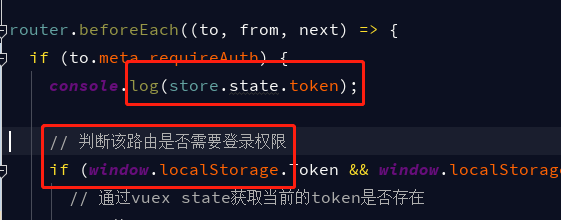Why does this throw NullPointerException
public static void main(String[] args) throws Exception {
Boolean b = true ? returnsNull() : false; // NPE on this line.
System.out.println(b);
}
public static Boolean returnsNull() {
return null;
}
while this doesn't
public static void main(String[] args) throws Exception {
Boolean b = true ? null : false;
System.out.println(b); // null
}
?
The solution is by the way to replace false by Boolean.FALSE to avoid null being unboxed to boolean --which isn't possible. But that isn't the question. The question is why? Are there any references in JLS which confirms this behaviour, especially of the 2nd case?
The difference is that the explicit type of the returnsNull() method affects the static typing of the expressions at compile time:
E1: `true ? returnsNull() : false` - boolean (auto-unboxing 2nd operand to boolean)
E2: `true ? null : false` - Boolean (autoboxing of 3rd operand to Boolean)
See Java Language Specification, section 15.25 Conditional Operator ? :
For E1, the types of the 2nd and 3rd operands are Boolean and boolean respectively, so this clause applies:
If one of the second and third operands is of type boolean and the type of the other is of type Boolean, then the type of the conditional expression is boolean.
Since the type of the expression is boolean, the 2nd operand must be coerced to boolean. The compiler inserts auto-unboxing code to the 2nd operand (return value of returnsNull()) to make it type boolean. This of course causes the NPE from the null returned at run-time.
For E2, types of the 2nd and 3rd operands are <special null type> (not Boolean as in E1!) and boolean respectively, so no specific typing clause applies (go read 'em!), so the final "otherwise" clause applies:
Otherwise, the second and third operands are of types S1 and S2 respectively. Let T1 be the type that results from applying boxing conversion to S1, and let T2 be the type that results from applying boxing conversion to S2. The type of the conditional expression is the result of applying capture conversion (§5.1.10) to lub(T1, T2) (§15.12.2.7).
- S1 ==
<special null type> (see §4.1)
- S2 ==
boolean
- T1 == box(S1) ==
<special null type> (see last item in list of boxing conversions in §5.1.7)
- T2 == box(S2) == `Boolean
- lub(T1, T2) ==
Boolean
So the type of the conditional expression is Boolean and the 3rd operand must be coerced to Boolean. The compiler inserts auto-boxing code for the 3rd operand (false). The 2nd operand doesn't need the auto-unboxing as in E1, so no auto-unboxing NPE when null is returned.
This question needs a similar type analysis:
Java conditional operator ?: result type
The line:
Boolean b = true ? returnsNull() : false;
is internally transformed to:
Boolean b = true ? returnsNull().getBoolean() : false;
to perform the unboxing; thus: null.getBoolean() will yield a NPE
This is one of the major pitfalls when using autoboxing. This behavious is indeed documented in 5.1.8 JLS
Edit: I believe the unboxing is due to the third operator being of boolean type, like (implicit cast added):
Boolean b = (Boolean) true ? true : false;
From Java Language Specification, section 15.25:
- If one of the second and third
operands is of type boolean and the
type of the other is of type Boolean,
then the type of the conditional
expression is boolean.
So, the first example tries to call Boolean.booleanValue() in order to convert Boolean to boolean as per the first rule.
In the second case the first operand is of the null type, when the second is not of the reference type, so autoboxing conversion is applied:
- Otherwise, the second and third
operands are of types S1 and S2
respectively. Let T1 be the type that
results from applying boxing
conversion to S1, and let T2 be the
type that results from applying boxing
conversion to S2. The type of the
conditional expression is the result
of applying capture conversion
(§5.1.10) to lub(T1, T2) (§15.12.2.7).
We can see this problem from byte code. At line 3 of main's byte code, 3: invokevirtual #3 // Method java/lang/Boolean.booleanValue:()Z, the boxing Boolean of value null, invokevirtual the method java.lang.Boolean.booleanValue, it will throw NPE of course.
public static void main(java.lang.String[]) throws java.lang.Exception;
descriptor: ([Ljava/lang/String;)V
flags: ACC_PUBLIC, ACC_STATIC
Code:
stack=2, locals=2, args_size=1
0: invokestatic #2 // Method returnsNull:()Ljava/lang/Boolean;
3: invokevirtual #3 // Method java/lang/Boolean.booleanValue:()Z
6: invokestatic #4 // Method java/lang/Boolean.valueOf:(Z)Ljava/lang/Boolean;
9: astore_1
10: getstatic #5 // Field java/lang/System.out:Ljava/io/PrintStream;
13: aload_1
14: invokevirtual #6 // Method java/io/PrintStream.println:(Ljava/lang/Object;)V
17: return
LineNumberTable:
line 3: 0
line 4: 10
line 5: 17
Exceptions:
throws java.lang.Exception
public static java.lang.Boolean returnsNull();
descriptor: ()Ljava/lang/Boolean;
flags: ACC_PUBLIC, ACC_STATIC
Code:
stack=1, locals=0, args_size=0
0: aconst_null
1: areturn
LineNumberTable:
line 8: 0


